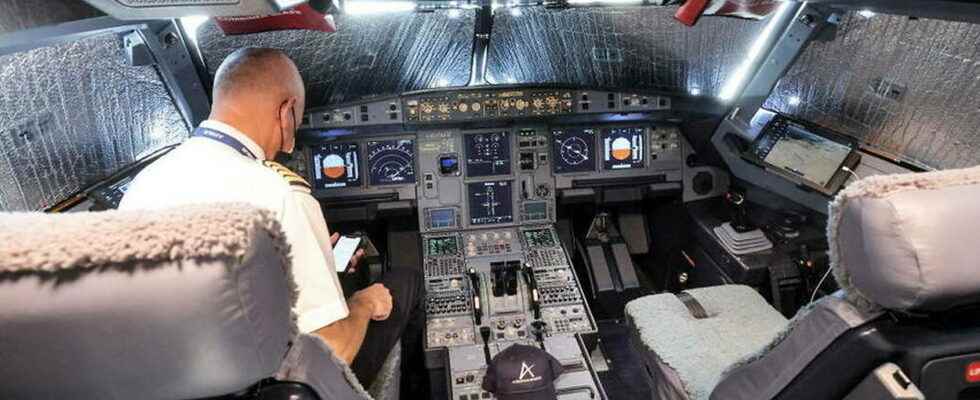L’aviation still a dream? At the heart of debates and controversies on climate change, its use is increasingly singled out. PSG, pinned for its round trip to Nantes by private jet, recently paid the price. The fact remains that future pilots are jostling at the gate, and that this elitist profession still arouses as many vocations.
Nicolas Haentjens, student in 3e year of aeronautical engineering at Ipsa and future pilot student, admits to broaching the subject with his comrades who are “all aware and informed about the weight of air in the ecological crisis”. Yes, aviation pollutes, but future professionals in the sector still choose to join the system knowingly. “This summer, a friend asked me if I felt guilty for wanting to participate in polluting the planet,” recalls the young man, constantly confronted with this question.
The Covid-19 page almost turned
Air transport accounts for just 12% of transport industry emissions, compared to 74% for road transport, according to figures from the Air Transport Action Group and the European Environment Agency dated 2019, before the pandemic. Problem: a plane trip consumes almost three times as much CO2 per passenger and per kilometer than a car trip.
After the sudden shutdown caused by the coronavirus in 2020, air transport has already almost returned to normal levels. According to the monthly report “TendanCiel” from the Ministry of Ecological Transition, the traffic observed in July 2022 corresponds to 86.4% of that observed in July 2019, i.e. the last summer before the health crisis. A similar trend was observed for the month of August.
CASE Energy crisis: find all our file
“Aviation is a vocation. Instead of giving up, we project ourselves as agents of change,” defends Nicolas. For these budding airline pilots, there are now redesigned training courses, directly overseen by the General Directorate of Civil Aviation (DGAC), attached to the Ministry of Ecological Transition. It is she who has authority over the pilot schools. Thus, university programs and ecology are linked as soon as possible.Because air transport is not going away any time soon, the sector must transform and improve to become as sustainable as possible. Solutions already exist: the DGAC ensures that it is possible to save up to 7% of kerosene per flight by applying certain navigation techniques. “When we know that a continuous descent literally saves tons of fuel compared to a step-by-step descent, we as pilots and air traffic controllers strive to land in the least harmful way possible”, quotes Nicolas, for example. . A first step.
#Magazine | Continuous descents to the main airports����, reduced constraints on the route network, innovative flight management systems, satellite procedures, European research projects…
Discover the envt strategy of the #DSNA��https://t.co/mI7lsr7mJc pic.twitter.com/Ck3sNdtU0p— Directorate General of Civil Aviation �������� (@DGAC) August 11, 2022
Ecological issues at the heart of training
Thierry de Basquiat, director of pilot training and flights at the National School of Civil Aviation (Enac), highlights the constant evolution of his establishment’s training on environmental issues. New conferences have been devoted to this theme for a year and a half. “As far as practical training is concerned, the first ten hours of flight are done on an electric plane and we are organizing a switch to SAF (Sustainable Aviation Fuel), that is to say to bio-sourced fuel”, underlines our interlocutor.
READ ALSOPrivate jets: beyond the controversy, what does the science say?
An approach capable of reassuring the most anxious about the future of the planet? If some students have given up due to ecological awareness in recent years, they can only be counted on the fingers of one hand at Enac.
We project ourselves as agents of change.Nicolas, future student pilot
Enac trains all types of aviation players, from airline pilots to engineers and air traffic controllers. “The green transformation of the airline industry is not an individual matter. This is an evolution which fundamentally requires that all the professions work together to achieve the targeted objectives”, notes Thierry de Basquiat.
In addition to these innovations, the sector may have to make certain concessions. Augustin de Romanet, CEO of Aéroports de Paris, himself calls for traffic moderation and says he is ready to face a decline in the sector. In an interview at BFM Business this September 19, he ensures “never to get in the way of those who want to have more responsible behavior”. Some people want the future of short and medium-haul flights to be written on the railways.
